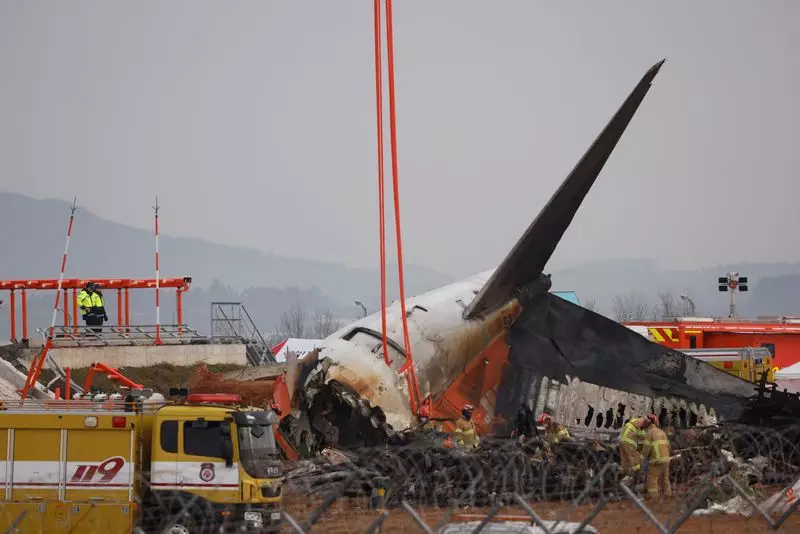On a somber Monday, South Korea witnessed a significant financial backlash in the aviation sector following its gravest air disaster, resulting in the loss of 179 lives. Jeju Air, the country’s prominent budget airline, saw its stock prices plummet to unprecedented lows amid fears surrounding consumer safety and confidence. This incident provokes a larger discussion about the implications of air disasters on stock markets and consumer sentiment in the airline industry.
Jeju Air’s shares experienced an overwhelming decline, plunging as much as 15.7% at one point during trading, ultimately closing down 8.5% on the day. The market capitalisation loss was stark, erasing approximately 95.7 billion won (around $65.2 million). This dip not only marks Jeju Air’s lowest value since it went public in 2015, but it also raises questions about investor confidence in low-cost carriers, which rely heavily on reputation and public trust.
In addition to Jeju Air, the holding company AK Holdings faced substantial losses, with its shares falling almost 12%, hitting a low not seen in 16 years. Such drastic shifts in stock values reflect the immediate market reactions to tragedies, where financial implications are often intertwined with emotional responses of stakeholders.
In the wake of the accident, the acting President of South Korea, Choi Sang-mok, mandated an emergency safety inspection of the entire airline sector, highlighting the government’s recognition of the critical situation. This response indicates an urgent need for regulatory bodies to restore public trust in air travel, especially for low-cost airlines which may face heightened scrutiny after such incidents.
While Jeju Air wallowed in the repercussions of the crash, other budget airlines reacted differently in the face of market turbulence. Air Busan saw a rise of over 15%, suggesting that some factions within the industry may benefit from the fallout on weaker competitors. Conversely, established airlines like Korean Air and Asiana Airlines also faced declines, albeit minor ones, signalling a broader industry malaise influenced by the tragedy.
Analysts, including Eugene Investment Securities’ Yang Seung-yoon, emphasize the potential long-lasting effects on consumer sentiment. Although it might take time to determine the ultimate cause of the crash, it’s clear that budget carriers, which often compete on price rather than distinct service offerings, could face a trust deficit in the immediate future.
The repercussions of the crash extended into the travel sector as well. Travel agencies halted advertising campaigns, and reports indicated that cancellations doubled while new bookings halved. These operational shifts reveal how intertwined travel agencies are with airline safety perceptions. The sharp declines in agency stock values, such as a 7% drop for Hanatour Service and an 11% decrease for Very Good Tour, further highlight the comprehensive nature of the crisis within the travel ecosystem.
The devastating air crash in South Korea serves as a powerful reminder of the fragility of consumer confidence in airline safety. With immediate financial impacts, the incident raises serious questions about the resilience of budget carriers amid crises. As recovery efforts ensue, the aviation industry must brace for the long-term implications on public perception, regulatory changes, and operational practices moving forward. The response from both government and stakeholders will be crucial in determining the future landscape of air travel in the nation.

